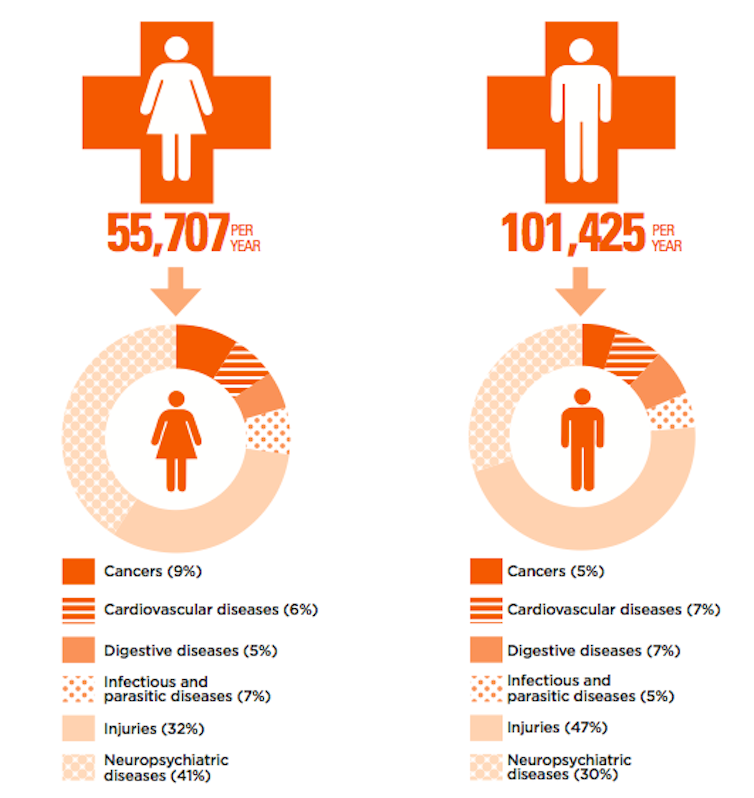Chronic disease and injury caused by alcohol has significantly increased over a decade, causing 15 deaths and 430 hospitalisations each day in Australia, according to a new report.
The VicHealth and Foundation for Alcohol Research and Education’s Alcohol’s burden of disease in Australia report, released today, shows the number of alcohol-attributed hospitalisations and deaths has increased by 62% since the study was last undertaken a decade ago.
Lead author Dr Belinda Lloyd, head of Population Health Research at Turning Point, said the report showed some Australians were continuing to drink to excess.
“This has led to an increase in hospitalisations for chronic conditions such as cancers, heart disease, digestive diseases as well as mental disorders,” she said.
“The reality is that the long-term effects aren’t just confined to one Saturday night, with serious health problems a genuine concern.”
The report found alcohol caused 5,554 deaths and 157,132 hospitalisations in 2010.
Among men, injuries were responsible for the highest number of alcohol-related deaths (36%), followed by cancers (25%) and digestive diseases (16%).
Among women, the highest number of alcohol-attributable deaths was for heart diseases (34%) followed by cancers (31%) and injuries (12%).
Alcohol-related hospitalisations

Alcohol consumption has been relatively stable over the past decade, with Australian adults consuming an average of ten litres of alcohol per year.
But there have been important changes in the patterns of consumption, with some groups binge drinking.
“When you start to look at sub-populations, we’re seeing people drink in excess and this can lead to a very real increase in chronic conditions,” Dr Lloyd said.
The increase in alcohol-related diseases can also be partly explained by the greater number of conditions that are now attributed to alcohol, she said. Alcohol is now considered a cause or factor in more than 200 diseases.
Professor Rob Moodie, Professor of Public Health at University of Melbourne, said the report showed the nation’s alcohol problem was worse than previously thought.
“Young people know that it causes injuries, but the fact that it’s got such a high risk for cancers and heart disease in men and women may not be known,” he said.
Prof Moodie said it was disappointing the report showed Northern Territory residents were three times more likely to die from alcohol use than other Australians.
It is not enough for politicians such as Northern Territory Chief Minister Adam Giles to say the NT’s drinking culture is a “core social value”, he said, and the report showed the consequences of those attitudes.
Prof Moodie said is was important to challenge the alcohol industry’s claims that Australia does not have an alcohol problem.
“I would like to see sensible restrictions on alcohol advertising, promotions and sponsorship,” he said.
“It’s not about trying to stop everyone enjoying alcohol, instead it’s about reducing the impact harmful forms of drinking have on everyone else.”
Professor Steve Allsop, Director of the National Drug Research Institute at Curtin University, said the report’s comparison of alcohol’s harm across different illnesses allowed for more targeted responses and provided a “more accurate benchmark on the harm of alcohol”.
He said it was important to understand personal relevance of alcohol-related illness and injury.
“Part of the issue is that we tend not to perceive ourselves as ‘at risk’ from alcohol. It’s seen as somebody else’s problem,” Prof Allsop said.
“What stands out most in the report is that the burden of alcohol is not just felt by the individual alcohol consumer. There is significant burden on the whole of Australia.”

